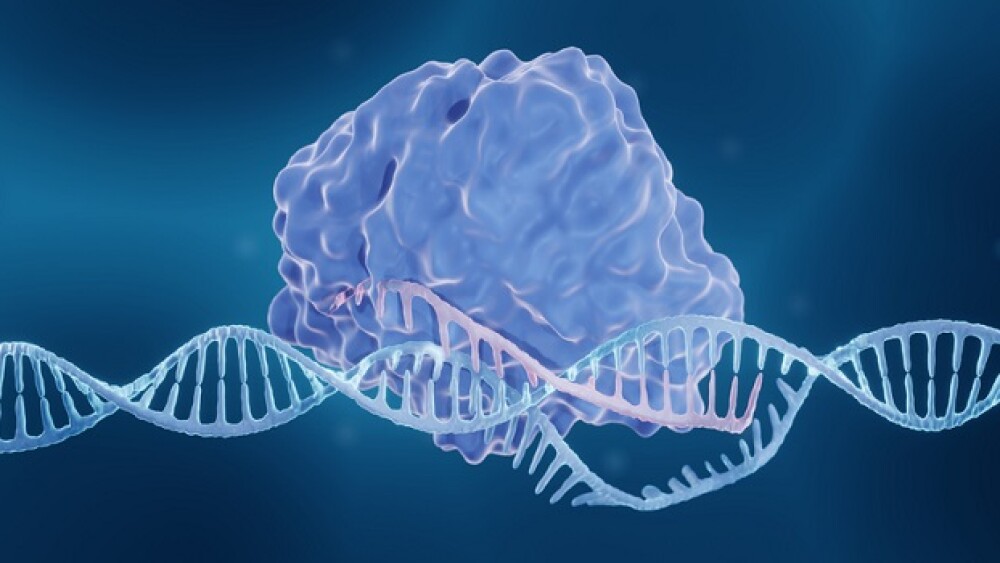The New England Journal of Medicine study suggests that the 2022 death of a Duchenne muscular dystrophy patient was due to an adverse effect of recombinant AAV used to deliver the gene therapy.
Pictured: Illustration of a CRISPR-Cas9 system/iStock, Artur Plawgo
A paper published on Thursday in The New England Journal of Medicine suggests that the potential cause of the 2022 death of a Duchenne muscular dystrophy patient was due to an innate immune reaction triggered by the high dose of recombinant adeno-associated virus used to deliver the gene therapy.
In November 2022, 27-year-old Terry Horgan died after receiving an investigational CRISPR-based therapy for his rare form of Duchenne muscular dystrophy (DMD). The study had been given the go-ahead by the FDA.
According to Thursday’s report, the DMD patient developed mild cardiac dysfunction and pericardial effusion after receiving the CRISPR treatment, which was then followed by acute respiratory distress syndrome (ARDS) and cardiac arrest.
Post-mortem examinations revealed severe diffuse alveolar damage, but detected only low levels of the transgene therapy in the liver. There were also no signs of “adaptive humoral or cell-mediated immune responses” against the adeno-associated virus (AAV) used to deliver the therapy, or against the transgene product itself, according to the authors.
Taken together, these factors suggest that the death was caused by an innate immune reaction triggered by the high dose of recombinant AAV used to deliver the gene therapy, the researchers found.
The effects of the immune reaction were exacerbated by the advanced stage of the patient’s condition, which could have “limited his physiological reserve and decreased his ability to survive the cardiopulmonary stress associated with acute toxic effects” associated with the gene therapy, the authors wrote.
The NEJM study was funded by the non-profit biotech Cure Rare Disease (CRD), which also supported the FDA-sanctioned DMD trial. The patient who died was the brother of CRD’s founder.
Patient deaths have been a common stumbling block for investigational gene therapies in rare diseases. In September 2021, Astellas Pharma voluntarily paused its Aspiro study in X-linked myotubular myopathy, following reports of serious adverse events and mortalities after being treated with the AAV-based investigational gene therapy AT132. Ultimately, four patients died in the trial.
Pfizer has also run into safety issues. In December 2021, the pharma company revealed that one of the patients in its DMD trial had died after receiving its investigational gene therapy PF-06939926, which also uses an AAV delivery system. A few days later, Pfizer paused screening and dosing in the study.
Both Astellas and Pfizer have presented some of their findings from these studies at medical congresses, though the companies have yet to publish the full investigations into the deaths, according to STAT News.
Tristan Manalac is an independent science writer based in Metro Manila, Philippines. He can be reached at tristan@tristanmanalac.com or tristan.manalac@biospace.com.






